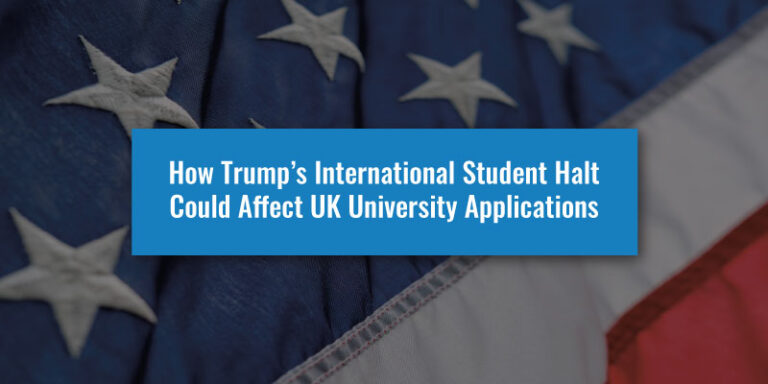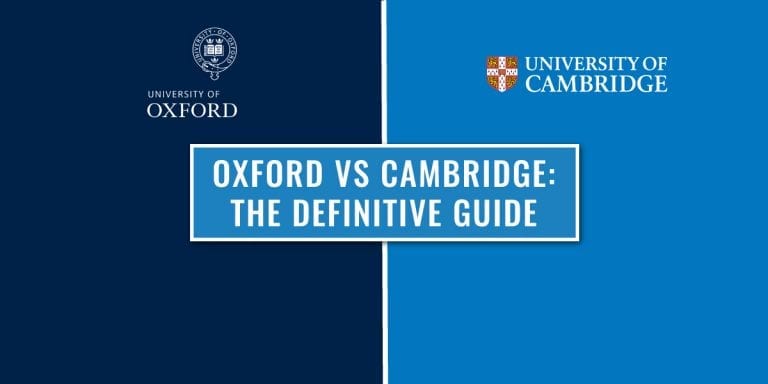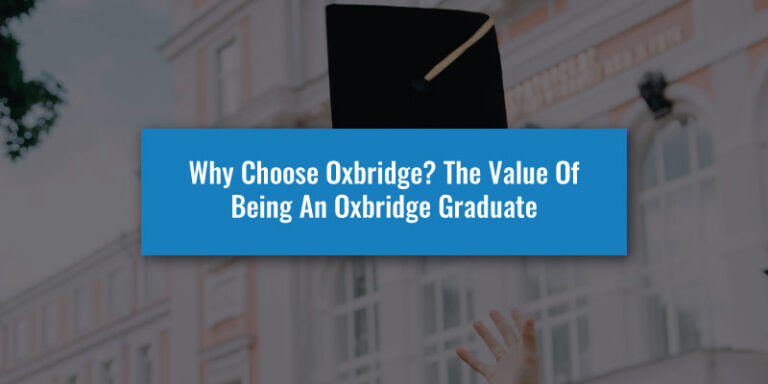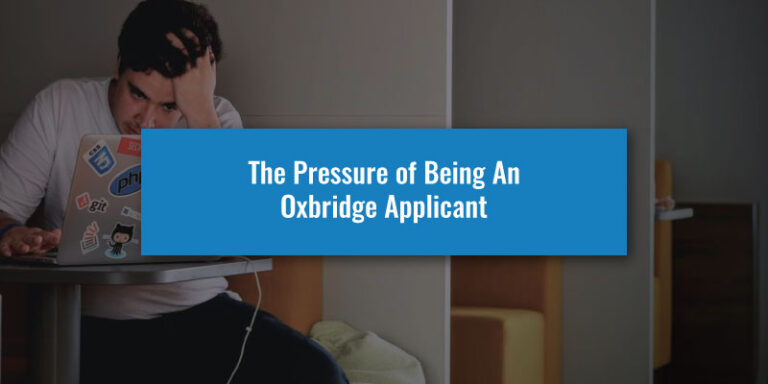Oxford and Cambridge are amongst the highest-performing universities in the world – this fact we all know.
They also generally take only the brightest minds from each cohort: but what does this actually mean, and could this apply to you? Here is why you should not count yourself out.
Self-Exclusion
Aside from the minimum offer of A*AA for Arts/Humanities (AAA for Oxford), and A*A*A for Science/ Mathematics subjects and Admissions Tests, there are no official criteria to distinguish one intelligent student from another – and therefore, there’s no substantive reason why you should rule yourself out! Self-exclusion is an important reason why Oxbridge often allows talented candidates to slip through the net.
Oxbridge Stereotypes
Sometimes, the very brightest minds, who may never even have realised they could fall under this bracket, lack the confidence, the self-belief, or sometimes, the desire to apply to these prestigious, albeit highly traditional, institutions.
They’ll see the Daily Mail’s photographic features of students enjoying extravagant May Ball events, raucous drinking society gatherings, or dressed in flamboyant academic gowns, and think “that’s not me”.
Here’s a secret: those who see these things and think “that is me” are incredibly rare – and these activities may either be entirely optional or occur very infrequently. They don’t reflect the daily reality of life at Oxbridge, so don’t be put off by these quirks alone.
Start your Oxbridge application journey in the best way possible with effective support from our Oxbridge Tutors.
We help you craft the perfect Personal Statement, achieve a highly competitive Admissions Test score and teach you how to Interview effectively – covering all areas of your Oxbridge application, from History to Medicine.
Discover our Oxbridge Premium Programmes by clicking the button below to enrol and triple your chances of success.
To help you out, we have asked lots of Oxbridge students to write about what life really is like at Oxford and Cambridge:
What’s it like to study at Cambridge?
What’s it like to study at Oxford?
Oxbridge Interviews
Oxford and Cambridge Interviews are designed to be difficult, but this won’t mirror the manner in which a written A-level exam might feel “difficult”. Here, they’ll be asking you things that almost nobody your age and at school would ‘know’ automatically. Even those with straight A*s could fail to reach the type of considered answer that a critical, independent thinker who succeeds in Oxbridge could reach.
Irrespective of whether you’ve achieved slightly lower than some applicants in formal examinations, you may have just as much of a chance as someone with four A*s – and might even end up more successful in your degree. This is a key reason why Oxbridge employ interviews as part of – although not the entire – admissions process.
Some people shine brighter in person than any bland written grade could reveal about them. Your grades aren’t you – and they’re not summative of your intelligence either. Only you in person can definitively demonstrate that, and Oxbridge admissions tutors are highly adept in recognising this spark in students.
Self-doubt
“But I don’t feel intelligent. I’m not the brightest or the best. For instance, I’ve always found [subject] difficult.”
Not all Oxbridge students are all-rounders. They are often just incredibly passionate and talented in their subject, which is by far the most important criterion. Personally, I always struggled with Maths, a core subject no less. What I worried more about was that at no stage was I ever even top of the class in secondary school, except sometimes in Geography, which I now study successfully at Cambridge.
“How could I expect to rank among the brightest and the best if I couldn’t even beat my classmates in one suburban comprehensive?”
The truth is that intelligence works in mysterious ways, and almost oxymoronically, school isn’t always the best place for it to be put into practice.
Whether you think you’re the “most intelligent” or even just “slightly above average”, as I did, I can promise you that you’re smarter than any exam board could hope to give you credit for. However, an Oxbridge interviewer may well be able to recognise this in you. You’ve got nothing to be ashamed of by giving it a shot.
Feel like Oxbridge will work for you? We triple your chances of getting a dream Oxford or Cambridge offer.
Our Oxbridge Premium Programmes help you craft the perfect Personal Statement, achieve a highly competitive Admissions Test score and teach you how to Interview effectively – covering all areas of your Oxford or Cambridge application, from History to Medicine.
Discover our Oxbridge Premium Programmes by clicking the button below to enrol and triple your chances of success.






